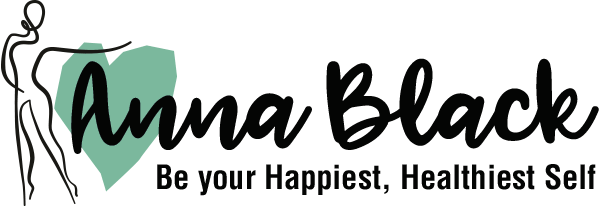The brain is the epicentre of our bodies and determines how we feel, think and act. But as we get older we can go through cognitive decline, the brain gets more tangled, the blood brain barrier gets thinner, and results can vary from brain fog, anxiety, stress to depression and dementia. In fact, 1 in 3 people born this year will develop dementia in their lifetime if we don’t make changes with 2 women affected for every man. And according to Neuroscientist Dr Lisa Mosconi “dementia is not an illness of old age. Changes start happening in midlife, not just when the symptoms come out” and she counts midlife as our 40s. The good news – how we live our life can help how we age. So learning what we can do to improve the stats and our own situation is vital.
What stresses the brain as we get older?
Increase in inflammation and oxidative stress – free radicals are produced naturally in the body through everyday living. They are balanced out by antioxidants but as we get older we naturally produce less antioxidants which can lead to imbalance, or oxidative stress. In addition free radicals can also be produced through drinking alcohol, eating processed foods, chronic stress and chemicals leading to further imbalance. Oxidative stress has been linked to certain types of dementia (alzheimers and vascular dementia) diabetes, atherosclerosis, inflammatory conditions, heart disease, cancer, ageing and can affect the production of neurotransmitters such as serotonin.
Oestrogen is very protective of the brain – The parts of the brain that control temperature, sex drive, sleep, emotions, attention and memory are rich in oestrogen receptors therefore changing levels can affect all of these things and women are twice as likely to have sleep issues than men in midlife.
Nutrition – the size and function of the hippocampus appears to be influenced by diet and healthier diets are linked to larger hippocampal size, whilst unhealthier diets are linked to smaller hippocampus size
Gut/brain connection – if the gut is stressed, it will tell the brain we’re stressed. Chronic (constant) stress can lead to anxiety and affect our mental health. In addition it can result in a release of cortisol, affect our insulin resistance, lead to inflammation, hormone imbalance and other metabolic syndromes and has been shown to literally shrink womens’ brains as we get older
Poor CVD health/less exercise – less movement can result in poor blood flow to the brain
What can we do?
So what can we control? HRT is always an option and has many benefits (read more here), although currently the jury is out on whether it can specifically influence dementia, due to lack of appropriate studies. But whether you take HRT or not, there are other lifestyle changes that can greatly affect our brains.
Nutrition – Plant led diet, some fish, a little meat, cut back on the processed & hydrate
- “The brain of a 50 year old woman on a mediterranean diet … looks 5 years younger than (someone who) is on a western diet” Dr Lisa Mosconi, neuroscientist. She recommends including key foods such as sesame seeds, flaxseeds, chickpeas, strawberries, melon, dried apricots.
- It is also a case of looking at the whole diet. Dr Felice Jacka, who ran the famous Smiles Trial in 2017 (see here for more info on plant based) states that the traditional Mediterranean diet has by far the largest and most consistent evidence base for health benefits. It’s high in a wide variety of plant foods, such as colourful vegetables, fruits, a wide variety of leafy greens such as rocket, spinach, kale, nettles which are wonderfully rich in nutrients and bioactive compounds, wholegrain cereals such as barley, buckwheat, millet, oats, polenta, rich, breads, couscous and wholemeal pasta, raw nuts, legumes such as lentils, chickpeas and beans, and lots of olive oil (especially EVOO). It also incorporates lots of fish, a little bit of red wine and dairy foods, and a low intake of red meat.
- In a 2013 meta analysis there was some evidence showing that when you take fish out of a mediterranean diet it can reduce the positive effect on cognitive function. In addition to the omega 3 in oily fish, new evidence shows that a protein (beta parvlbumin) is abundant in many types of fish, including cod, carp, redfish and herring. Most recommedations are 2 – 3 times a week and studies have shown after this benefits don’t grow any more.
- As above, Omega 3 great for the brain, in a study by Lauretti et al 2017 “EVOO was found to ameliorate cognitive and neuropathology of brains. It can also reduce brain inflammation and clear out toxins such as amyloid plaque/tau tangle”. This was carried out on mice but omega 3 is good for us in so many ways including hormone production and our skin so it’s always worth including.
- If you follow the mediterranean diet you should get a good variety of fibre, linked to the immune system, transit of food through the body, gut health and the gut microbiome, hormone balance and heart health.
- Berries are great – they are anti ageing, anti oxidant, anti inflammatory. They are high in fibre and flavanoids plus 60% make it to the colon (lots don’t) and so are good for feeding the immune system and keeping our gut happy.
- Hydration – even a 2% water loss can result in a foggy brain.
- The gut/brain axis, happy gut = happy brain. Scientists believe that “having a higher level of bacterial diversity in the gut may be a marker of gut health” as the more different types they are the less likely one will dominate plus all do different things. The American Gut Project study showed that a variety of plant based foods including 30+ different plants a week can help achieve this higher level of diversity. The gut also produces up to 90% of serotonin (a feel good neurotransmitter) and houses a lot of the immune system.
Exercise – Protects & grows your brain, improves your mood & your focus
- Exercise can induce neurogenesis as well as improving function in the hippocampus.
- Brain Derived Neurotrophic Factor (BDNF) which supports the making of memories, mood and neuroplasticity, reduces as we age and our oestrogen drops. When we exercise we produce BDNF.
- Exercise increases blood flow to the brain and increases neurotransmitter production. Neuroscientist Prof Wendy Suzuki states “a single workout will increase serotonin, dopamine, it will increase your ability to focus for 2 hours and will improve reaction time.”
- Longer term effects: “exercise produces new brain cells in the hippocampus that increase volume and long term memory, it will improve attention function in the prefrontal cortex and it will improve long lasting good mood. And the best thing, it will have amazing protective effects on the brain. The more you work out, the bigger the size of the prefrontal cortex and hippo. These are the two most at risk of cognitive issues so the bigger they are the long it will take for them to be affected by cognitive diseases” Prof Wendy Suzuki. She suggests including 30 minutes 3- 4 times a week of aerobic exercise.
- Strength, Balance and Flexibility exercise can induce neurogenesis as well as improve function in the hippocampus and improve sugar control. Strength Study by Davison et al 2011, showed strength exercises “affects verbal learning and memory” with further studies in 2018 by Adami et al, showing that using the legs, particularly in weight-bearing exercise, sends signals to the brain that are vital for the production of healthy neural cells.
- HIIT is great for insulin resistance (linked to inflammation) so if you enjoy it include it, but vary your exercise.
- Yoga and meditation is a great way to stimulate the vagus nerve which has a direct link to the Parasympathetic Nervous System and will stimulate your thrive state.
- To power up the benefits, do it outside, do it with others, and enjoy it!
Lifestyle – Learn, embrace silence and go outdoors
- Stress management skills – stress can shrink your brain (Dr Lisa Mosconi) so find what works for you. Lots to be found on this in other posts but key things to try include;
- – Breathing – tells your brain you’re fine. Deepak Chopra states “your brain is always listening in to your body” Need to tell it you’re good.
- – Being in nature – shown to be brain calming in a Stanford University study.
- – Add more silence – study on mice published in 2013 found that when mice were in 2 hours of silence they developed new brain cells in the hippocampus.
- Work your brain and learn new habits and new information. Even brushing your teeth with your opposite hand can work your brain.
- Sing and Learn a Language – In the Nun Study in 2003 by David Snowden 600+ nuns agreed to be followed and allowed him to study their brains after death. He found language improved the cognitive function as did a positive attitude and singing!
- Keep busy – A study on mice showed that physical, social and mental activity, may protect memory and alertness. Mice raised with other mice with toys displayed dentrite growth and performed better than inactive mice. Deprived environmental factors and stress reduce growth of neural growth studies.
Summary
Again it’s all about Nutrition, Exercise, Lifestyle but by understanding a little about why we do these things, trying some out and adding positive habits in rather than constantly telling ourselves we can’t do things, hopefully it can help us to make choices that help us to feel better, and (stealing this from Dr Chatterjee) live more!

